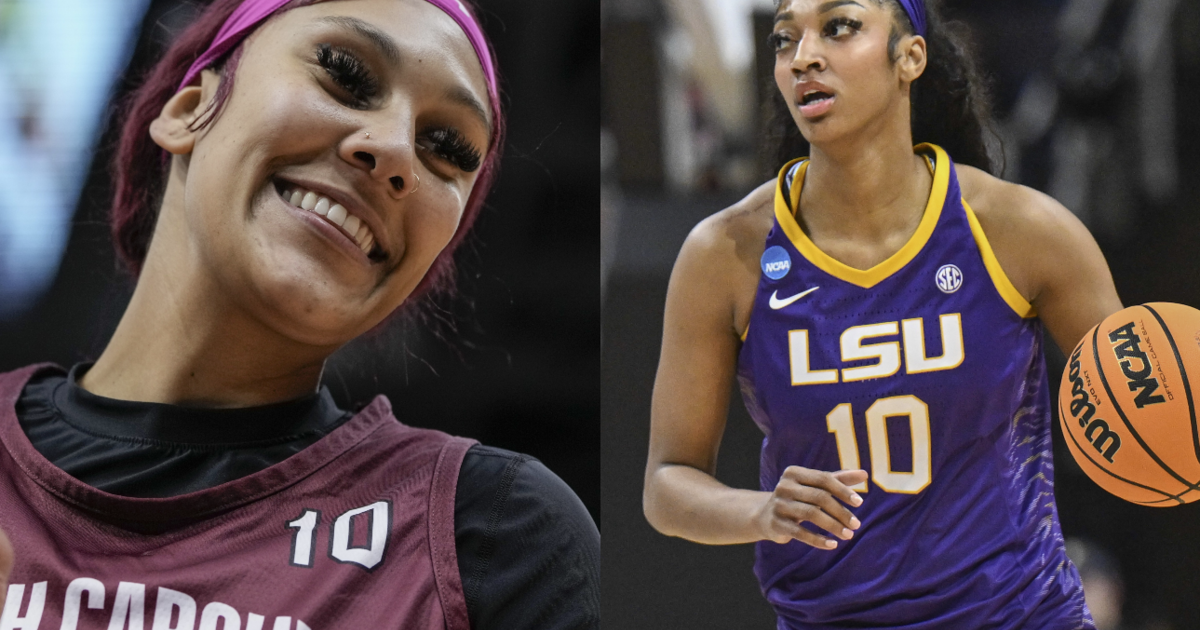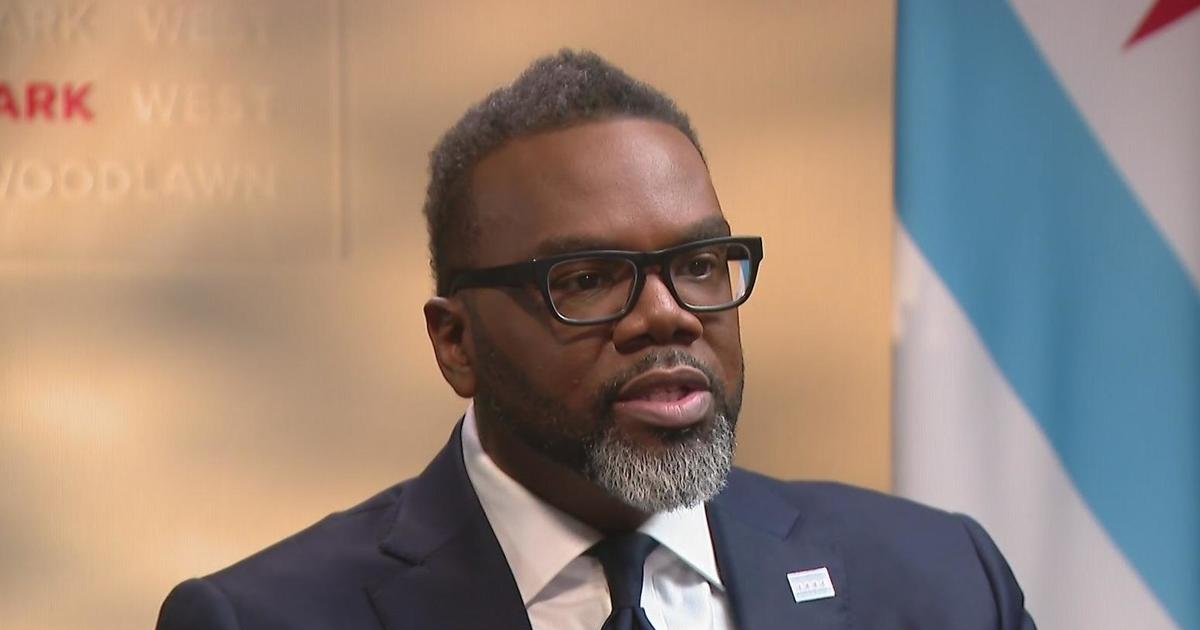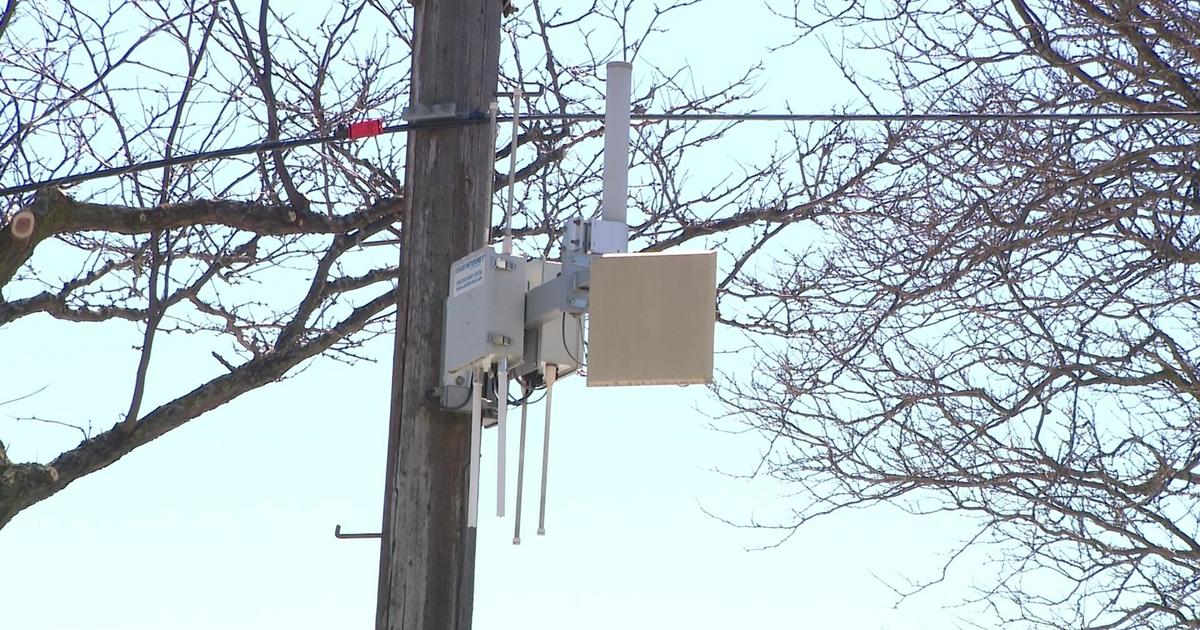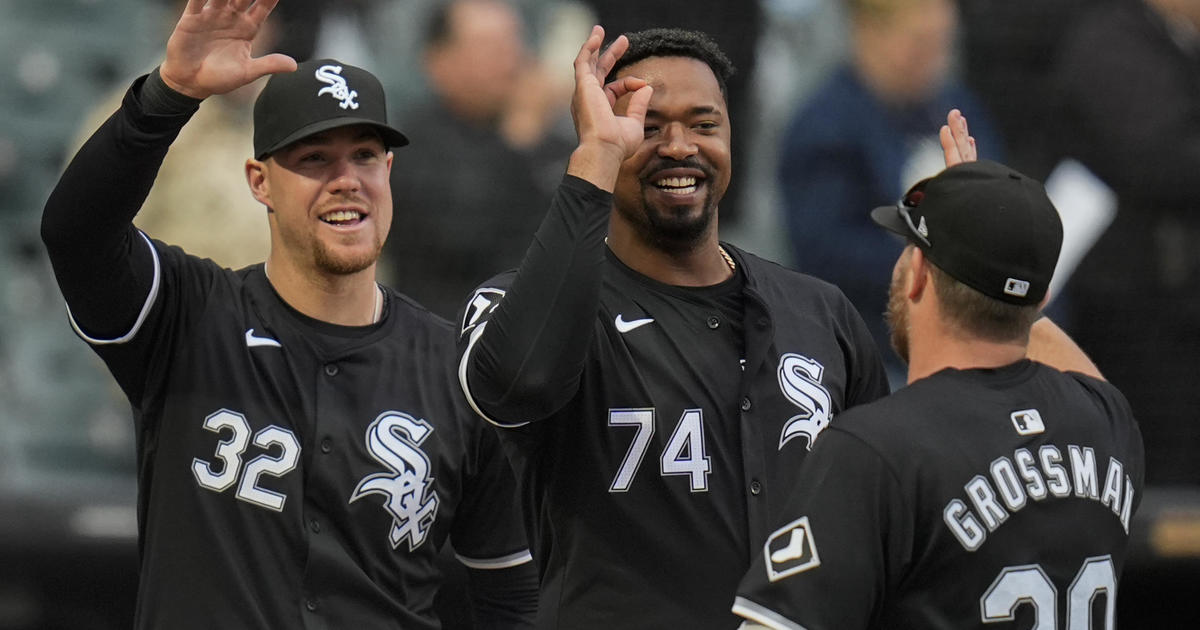Emma: Loyola's Team Of Change
By Chris Emma--
(CBS) History rarely happens suddenly. More often than not, it occurs over time. It takes triumphs and tribulations, with heroes revealing themselves amid uncertainty.
Jerry Harkness never imagined the historic journey he would soon embark as a young African-American boy growing up up in the projects of New York City.
As junior in high school in 1958, Harkness was being raised in the Harlem projects. He couldn't afford to pay the five cents to use the basketball courts in the YMCA but was frequently allowed access out of good graces. However, these courts weren't a place of comfort for Harkness.
Admittedly, the young Harkness was shy and apprehensive. He possessed extraordinary skills but didn't realize it. In these pickup games, he was one of the best players, and yet he couldn't appreciate such a fact. He was too afraid to even try out for his high school team.
"I just didn't think I could make it," said Harkness, now 74 and living in Indianapolis. "I kind of lacked confidence."
That all changed when Harkness was approached after a game by a recognizable face and offered a particularly remarkable vote of confidence.
You're not that bad. Keep it up.
The man was Jackie Robinson, his comment coming 11 years after he broke baseball's color barrier with the Brooklyn Dodgers, yet still living a segregated life in the predominantly black Harlem neighborhood.
"My eyes just spread open," Harkness recalled. "My mouth went open. I couldn't believe it."
For Harkness, that was the lift he needed. As a senior at DeWitt Clinton High School, he was the leading scorer and guided his team to the New York City championship in Madison Square Garden.
However, when Robinson inspired Harkness, there was no telling what was to come -- that Harkness would lose his chance to play basketball at Texas Southern because the dorm burned down, that he would fail the entrance test at New York University, that he would miss out on a scholarship at Connecticut because his grades were too poor, all before being reluctantly accepted to Loyola on academic probation.
Such a special story that would occur at Loyola University in Chicago -- with Harkness leading the Ramblers through racial boundaries and segregation en route to an NCAA Tournament title -- couldn't have been seen back in 1958.
After Robinson guided Harkness to play basketball, the young boy from Harlem followed in his hero's footsteps and triumphed against racial segregation and college basketball's best.
Loyola's 1963 basketball team would become the first to ever start four black players and remains the only team in the state of Illinois to win the NCAA Tournament, defying racial boundaries along the way.
"And the rest," said Harkness, "is history."
'We may have beaten a pro team'
Loyola's journey began with a coach unlike most and a vision different from anyone else in college basketball.
John Egan, Loyola's point guard and the lone white starter for much of the season, still reflects on coach George Ireland in the same way.
"George Ireland was a different man," said Egan of his coach, who died in 2001. "I liked the guy. He was different. He was like nobody I've ever met in my life."
The basketball tactics of Ireland were simple -- 40 minutes of a full-court press, with a fast-paced, transition offense, all while often playing all five starters the entire game. Regardless of the score, this was how Ireland's teams played.
Ireland was demanding, wanting so badly to win. Such a mindset was what led him to breaking the longstanding practice at the time in college basketball to not play more than three African-Americans at the same time.
That didn't matter to Ireland. Winning is what drove him at all costs.
"He probably went through a lot himself, with the other coaches, the unwritten rules," Harkness said. "He had it tough, too, he really did. We couldn't tell, probably, because he was that type of a person."
The Ramblers were one of the nation's best teams, and they knew it. But they were greeted with great challenges along the way. Loyola started the 1962-'63 season 21-0 before losing at Bowling Green in February. Two games later, the team traveled to play at University of Houston, where players were hit with coins, popcorn and even spit.
Incidents involving race were all over the news back then. The players would see it on TV, the marches in Mississippi, all the horror they were largely separated from in Chicago. But the Ramblers would endure their share, too.
Loyola entered the NCAA Tournament with a record of 24-2 and felt a collective confidence in its chances of winning the title. This began with a first-round contest against Tennessee Tech, to be played up Sheridan Road at Northwestern's McGaw Hall.
Attention had found its way to this Loyola team that was defying unwritten rules to a tournament dream. It had plenty of detractors -- simply because it started four black players -- which fired up the Ramblers more than ever. They had plenty to prove.
"We were in the middle of the civil rights movements," Harkness said. "Without even discussing it, the black guys felt we had to do well. We just had to do well. We had to prove we were equal to anybody else.
"They were marching in the South. There were people getting killed. We were motivated. We didn't disuss the civil rights movement, but it was hitting us in the face."
Loyola routed Tennesee Tech, 111-42, a score which still to day stands as the largest margin of victory in the NCAA Tournament. The fastbreak offense and full-court press defense were run for all 40 minutes, with extra motivation to pour it on.
"We were so up for that game, we may have beaten a pro team," Harkness said. "Tennessee Tech didn't stand a chance."
Coach Ireland's championship visions were off to a sensational start.
The Game of Change
George Ireland received a phone call the day after Loyola's record-shattering win over Tennessee Tech. It was from the dorm of his players, and Jerry Harkness was at the mailbox. It was stuffed with letters.
Immediately, Ireland rushed over to the dorm and grabbed the letters away from Harkness. They were from the Ku Klux Klan.
"He never gave it back," Harkness said.
Those letters still sit in the closet of Ireland's daugher, Judy Van Dyck, along with his championship ring. Ireland was constantly protecting his black players from the hate that followed his program.
Loyola's next NCAA Tournament foe was Mississippi State, a school set in the heart of such racial tension. It was a second-round game that almost became a forfeit win for the Ramblers.
Mississippi governor Ross Barnett, a prominent member of the Dixiecrats and supporter of segregation, filed an injunction that ordered the game not to be played. He couldn't allowed his a state university to face a team that would start one black player, let alone four.
For the three years prior to 1963, Mississippi State had one of the superior teams of the South. But the orders of Barnett barred the Bulldogs from their shot at the NCAA Tournament.
The Game of Change would come to be played on March 15 in East Lansing, Mich. Leaving in the dark of night, Mississippi State's team snuck out of Starkville against its governor's orders because it just wanted to play the game. When the Ramblers and Bulldogs took to the floor, racial segregation was left in the South.
"They were all gentlemen," Egan said of the Bulldogs.
Officials called the team's two captains to midcourt, on the Michigan State "S" logo. Cameras gathered around the floor as Harkness and Mississippi State captain Joe Dan Gold met and extended arms.
A black man from the projects of Harlem and the white man from segregated Mississippi shook hands.
"I looked him in the eyes, and I felt a togetherness with him," Harkness said. "When the light flashes went on from the (camera) bulbs, oh my goodness. It was more than a game. I felt that history."
The image of the two captains tells two vastly different stories meeting before a game. It can be seen in Loyola's athletic facilties today and remains an important piece of history, but the picture never meant more to Harkness than in 2011, when Gold died.
Harkness attended the funeral of Gold, the man who was supposed to represent the evil of segregation but instead became a good friend in the decades that would follow 1963. Harkness showed up to the funeral unannounced, and Gold's family graciously requested that Harkness would serve as a pallbearer.
"I go to the funeral, and it's all white," Harkness recalled. "I go in there, the family sees me and they put their hands out. We're crying and everything. I get my composure, go to the casket. To the left of the casket is a big picture of the handshake, and I lose it again."
Loyola would earn a 61-51 win over Mississippi State, advancing on to the round of eight. But the moment before the game is what Harkness will always remember.
The significance stood strong for Harkness as the camera flashes burst through the gym in East Lansing. As he returned to the huddle, the feeling was still present.
"That was the biggest thing in my life," Harkness said. "Not winning the national title. I just feel that played a part in America. And then, it coming from Jackie Robinson on down, it's too much of a connection, too much of a coincidence. This had to be something real. It was outside of us. I really think it was something from heaven."
'On top of the world'
Only one challenge on the court was standing in the way of the Ramblers.
Loyola bested Illinois in the round of eight, then decimated Duke in the national semifinals. The mighty Cincinnati Bearcats were waiting in the championship, seeking a then-unprecedented third consecutive title.
So much excitement met the Ramblers the night of their victory over Duke. In their Louisville hotel, the players were overwhelmed and stayed up into the wee hours of the morning. The problem was that their title bout with Cincinnati was that evening.
When Loyola took to the court in Louisville's Freedom Hall, the players were weary and exhausted. They didn't look like themselves against the top team in the country.
Loyola's high-tempo game was out of sync, its offense was struggling and the game was going terribly. With 14 minutes remaining, the Ramblers trailed by 15. To make matters worse, Harkness hadn't scored a point.
"I just think we were embarrassing ourselves out there," Egan said. "It was terrible to be playing for the national championship and be playing so poorly."
Still, Ireland stuck to the game plan that made him successful. The Ramblers sprinted on offense and pressed on defense. Not a single starter checked out of the game.
The comeback began for Loyola late, cutting the Cincinnati's lead to 53-52 with just 12 seconds left. Harkness fouled Cincinnati's Larry Shingleton, who hit the first free throw but missed the second. The Ramblers had one last chance.
Junior guard Ron Miller began the fastbreak but bobbled the ball and appeared to lose his balance. It appeared to be a traveling call -- at least in the Bearcats' eyes -- but Loyola continued its trek toward the hoop. Miller's pass went to Harkness, who hit a shot with four seconds left to force overtime.
"Cincinnati is still crying," Egan said of the non-call.
In the waning seconds of overtime, with the score tied at 58, with all of Loyola's five starters still in the game, junior center Les Hunter heaved a shot for the championship. The ball caromed off the rim, where it was met by junior forward Vic Rouse, who pulled it down and put it back through the hoop as time expired.
Loyola had won the 1963 national championship.
"I just thought I was on top of the world," Harkness said. "We all did. That's the greatest feeling in the world -- to become the national champions."
Still a part of history
Just more than 52 years after Loyola's remarkable championship, Jerry Harkness and John Egan met for dinner this past Monday night in Chicago before Loyola's CBI championship contest in Rogers Park.
Inside Gentile Arena, a video played that featured Harkness, among other Loyola greats.
My name is Jerry Harkness, and I'm a Rambler.
Harkness would go on to the NBA, playing a season with the New York Knicks. He would then play two years with the Indiana Pacers, then of the ABA, before becoming the first African-American salesman for Quaker Oats, the first African-American volunteer at United Way and the first African-American sportscaster in Indianapolis.
Every member of Loyola's 1963 team would graduate, and and everyone except Harkness and Miller earned a master's degree. Those two took on professional basketball careers after completing their undergraduate degrees.
On July 11, 2013, 50 years after the title, Loyola's champions were invited to the White House and honored by President Barack Obama. In November of that year, the entire team was inducted into the College Basketball Hall of Fame.
"It's a once-in-a-lifetime story," Harkness said.
From the segregated south to the Game of Change to the national championship, the remarkable journey began with a young black boy in Harlem who received incredible inspiration from Jackie Robinson.
"It's like he passed on the torch to Loyola's team," Harkness said. "It's the way it all worked out."
As Harkness would say, the rest is history.
Follow Chris on Twitter @CEmma670.



